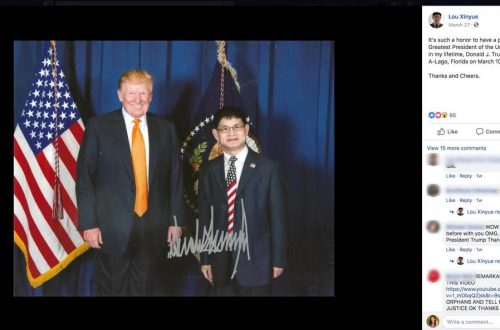Although I support Hillary Clinton for president, I’ve tried to be fair to Bernie Sanders.
Among other things I’ve praised his comments about the Communist regime in Vietnam during a discussion of the Trans-Pacific Partnership trade agreement which he opposes:
“The minimum wage in Vietnam is 56 cents an hour,” [Sanders said]. “Workers there cannot form independent unions. And if you protest government policy, you might end up in trouble. OK?”
So I was rather disturbed when the question of Cuba came up in last week’s debate between Clinton and Sanders. While both endorsed President Obama’s restoration of diplomatic ties with the Cuban regime, Sanders said this:
Cuba is, of course, an authoritarian undemocratic country, and I hope very much as soon as possible it becomes a democratic country. But on the other hand… it would be wrong not to state that in Cuba they have made some good advances in health care. They are sending doctors all over the world. They have made some progress in education. I think by restoring full diplomatic relations with Cuba, it will result in significant improvements to the lives of Cubans and it will help the United States and our business community invest.
Sorry, but this comes very close to apologizing for Cuba’s oppressive regime– i.e., curbs on freedom can be at least partly mitigated by “concrete achievements.” For one thing, as Yoani Sanchez noted in a memorable post at Generation Y, health care for ordinary Cubans (as opposed to foreign visitors and the country’s elite) can be pretty awful. For another, as I tried to show some years ago, Costa Rica provides an example of a small Latin American country that has made huge improvements in health care and education without sacrificing democratic rights or resorting to repression.
Clinton’s response was precisely correct. Noting that Sanders had referred to Cuba’s “revolution of values,” she said:
I just couldn’t disagree more. You know, if the values are that you oppress people, you disappear people, you imprison people or even kill people for expressing their opinions, for expressing freedom of speech, that is not the kind of revolution of values that I ever want to see anywhere.
Even more disturbing: In the Republican debate last week, Donald Trump provided more evidence that he is a full-on power worshiper in the mold of George Galloway.
JAKE TAPPER (moderator): Mr. Trump, some of your Republican critics have expressed concern about comments you have made praising authoritarian dictators. You have said positive things about Putin as a leader and about China’s massacre of pro-democracy protesters at Tiananmen Square, you’ve said: “When the students poured into Tiananmen Square, the Chinese government almost blew it, then they were vicious, they were horrible, but they put it down with strength. That shows you the power of strength.”
How do you respond…
TRUMP: That doesn’t mean I was endorsing that. I was not endorsing it. I said that is a strong, powerful government that put it down with strength. And then they kept down the riot. It was a horrible thing. It doesn’t mean at all I was endorsing it.
As far as Putin is concerned, I think Putin has been a very strong leader for Russia. I think he has been a lot stronger than our leader, that I can tell you. I mean, for Russia, that doesn’t mean I’m endorsing Putin.
Uh huh.
A reminder for those who came in late: here’s what the “riot” in Tiananmen Square looked like before the Chinese regime moved in to crush it at the cost of hundreds or thousands of lives:
And here’s the reaction of one Tiananmen protest survivor to Trump’s comment:
My message to @realDonaldTrump and his supporters: pic.twitter.com/7e3hZWKQlf
— Rose Tang (唐路) (@rosetangy) March 12, 2016


